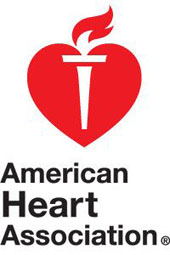More than 800,000 Americans have heart attacks each year and over 655,000 die from heart disease, which is the leading cause of death for both men and women. The good news is that heart disease is preventable and controllable.
The number of adults with diagnosed heart disease is 30.3 million
Five major symptoms of a heart attack include:
- Pain or discomfort in the jaw, neck, or back
- Feeling weak, light-headed, or faint
- Chest pain or discomfort
- Pain or discomfort in arms or shoulder
- Shortness of breath
The most common type of heart disease in the U.S. is coronary heart disease, also called coronary artery disease, which occurs when plaque builds up in arteries that supply blood to the heart. This type can cause heart attack, angina, heart failure, and arrhythmias.
Various conditions and lifestyle factors can put individuals at higher risk for heart disease, but you can help prevent heart disease by making healthy choices and managing medical conditions you may have.
- Eat healthy. Have plenty of fresh fruits and vegetables—adults should have at least 5 servings each day. Eating foods low in saturated fat, trans fat, and cholesterol and high in fiber can help prevent high cholesterol. Limiting salt or sodium can lower your blood pressure. Visit CDC’s Nutrition and Physical Activity Program Website.
- Maintain healthy weight. Being overweight or obese can increase risk for heart disease. To determine whether your weight is in healthy range, doctors often calculate your body mass index. If you know your weight and height, calculate BMI at CDC’s Assessing Your Weight Website.
- Exercise. Physical activity can help you maintain a healthy weight and lower cholesterol and blood pressure. Adults should engage in moderate-intensity exercise for at least 30 minutes on most days of the week. See CDC’s Nutrition and Physical Activity Program Website.
- Monitor blood pressure. High blood pressure often has no symptoms, so have it checked regularly. Find more information at CDC’s High Blood Pressure Website.
- Don’t smoke. Cigarette smoking greatly increases the risk for heart disease. If you smoke, quit asap. For information, see CDC’s Smoking & Tobacco Use Website.
- Limit alcohol. Avoid drinking too much alcohol, which can increase your blood pressure. Men should consume no more than two drinks per day, and women no more than one. For more information, visit CDC’s Alcohol and Public Health Website.
- Have cholesterol checked. Your health care provider should test your cholesterol levels regularly. Find out more from CDC’s High Cholesterol Website.
- Manage diabetes. If you have diabetes, monitor blood sugar levels closely and talk with your health care professional about treatment. Visit CDC’s Diabetes Public Health Resource for information.
Take your medicine. If you’re taking medication to treat high blood pressure, high cholesterol, or diabetes, follow doctor’s instructions. Ask questions if you do not understand something.
Source: www.cdc.gov, www.heart.org


